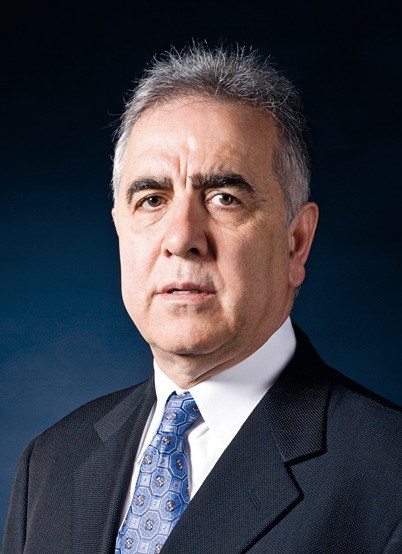In recent years, a growing number of Turkish intellectuals, scholars, journalists and human rights activists have taken bold positions on the Armenian Genocide, in opposition to their government’s denials. Although their number is small and their influence on Pres. Erdogan negligible, the fight for truth and justice has to be carried on two fronts: within and outside Turkey. Hopefully, over time, the ranks of such liberal Turks would enlarge, forcing their government to implement reforms on a variety of issues, including the Armenian Genocide.
These progressive Turks, however, should not be viewed as activists for the Armenian Cause. Their primary goal is to live in a democratic society that respects the rights of all citizens and acknowledges the dark pages of its past.
One such righteous Turk is Cengiz Aktar, Senior Scholar at Istanbul Policy Center, who has championed for many years recognition of the Armenian Genocide by the Turkish government.
Earlier this year, Aktar wrote two compelling columns, challenging Turkish denials of the Armenian Genocide. The first, published on April 21 in “Today’s Zaman,” was titled “The 99th Anniversary.” The second column, posted on “Al Jazeera English” website on April 24, was titled “Armenian Genocide: Turkey has Lost the Battle of Truth,” and subtitled “An empowered Turkish society is now challenging the state’s denialist paradigm on the tragic events of 1915.”
In his first article, Aktar described April 24 as “a symbolic day for Armenians who were forcibly dispersed all around the world. This collective disaster is still not recognized in Turkey. Even the fact that Anatolian Armenians were completely wiped out from their homeland is not enough for people and the state to recognize it.”
Aktar went on to ridicule Prime Minister Ahmet Davutoglu’s call for a “joint historical commission,” because it would be “composed of ‘genocide experts’ on the one side and of denialist professors on the other who cannot even convene, let alone arrive at a decision.”
Ending his column on an optimistic note, Aktar observed: “Unlike the state, Turkish society is today questioning the past and searching for appropriate answers. This is the soundest and most lasting way to face the truth. Peace will not come to these lands without confronting the past. 2015 will be the year when the quest for truth and memory will deepen, even if the government does not like it.”
In the Al Jazeera article, the Turkish scholar divided his government’s denialist campaign on the Armenian Genocide into three categories: lobbying efforts jointly with Azerbaijan, especially in the United States; hiring scholars to give Turkey’s “vulgar denialism” a scientific veneer; and diverting attention away from the Armenian Genocide Centennial by focusing on other events, such as “the Dardanelles battle victory” and “the military debacle of Sarikamis.”
Despite vigorous denialist propaganda, Aktar maintained that “Turkey has long lost the battle of truth. The destruction of the Armenian population on its ancestral land is a sheer fact, whatever else you might call it.”
Aktar proceeded to describe April 24, 1915 as “the dark day when the decision to erase Armenians from Anatolia began to be implemented by the Ottoman government of Young Turks or the Ittihadists. The rationale behind it was to engineer a homogeneous population composed of Muslims designated to form the backbone of the yet to be invented Turkish nation. Thus, there was no place for Christian populations despite their historic presence on those lands.”
The Turkish scholar then referred to a “report commissioned in May 1919 by the Ottoman government that came to power in 1918 after the demise of the Young Turks,” which stated that 800,000 Armenians had lost their lives by that date. Aktar also quoted from a book published in 1928 by the Turkish General Staff which reported that “800,000 Armenians and 200,000 Greeks died as a result of massacres, forced relocations and forced labor.” Aktar concluded: “when one adds those who died after 1918 in the Caucasus region due to hunger, illness and massacres, the figure surpasses one million. The cleansing work of Ittihadists was completed by Kemalists by obliging those throughout Anatolia whose lives were spared to take shelter in Istanbul and simultaneously by suppressing their places of worship and schools throughout Anatolia.”
The audacious Turkish intellectual ends his powerful article with a note of sober realism: “The genie is out of the bottle. When and how it will affect state policy is difficult to predict.”


